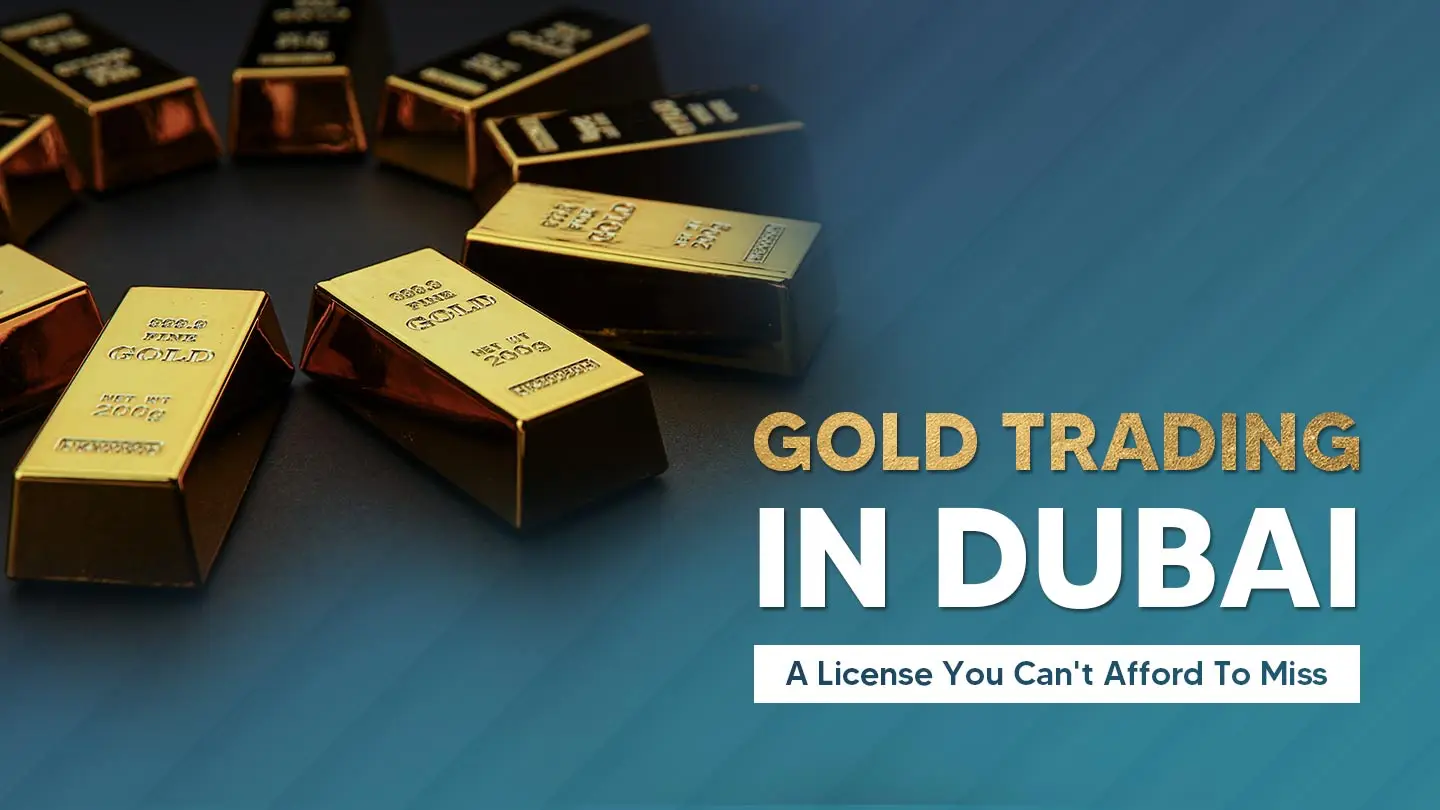The foreign exchange market, or forex, is the largest and most liquid financial market in the world. With trillions of dollars being traded daily, it offers endless opportunities for investors to profit from fluctuations in currency prices.
You can enjoy daily earnings and plan accordingly for future investments. A profitable venture in Dubai is to form a forex trading company, thanks to the enormous business sector and adequate support from the UAE’s government. However, many entrepreneurs wonder: Is forex trading legal in Dubai?
Is Forex Trading Legal in the UAE?
Yes, forex trading is legal in the UAE. The majority of the UAE’s population comprises expats which explains the need to send money back home. Therefore, forex providers are mushrooming in the country.
In fact, Dubai has become a hub for forex trading companies due to its strategic location, business-friendly environment, and advanced infrastructure. The city’s position as a global financial center makes it an attractive location for companies looking to establish a presence in the Middle East and beyond.
In the following article, you will learn how to start a forex company and how the business is it is regulated. It is also important to note that any entity dealing in forex must have a legal license to do so.
You can establish your dream company in the DIFC (Dubai International Financial Centre) which is a free zone and has independent jurisdiction beneficial for investors. Moreover, you can also choose the mainland region to form your forex trading company in the UAE. It has diverse opportunities and gives good returns on your investments.
Type of License to Start a Forex Trading Business in Dubai
The type of license you need to start a forex trading business in Dubai depends on your business model.
1. DMCC License (Category 3)
Ideal if your company will trade forex with its own capital. This is a professional license and doesn’t allow handling client funds. It’s a simpler and less expensive option compared to a DIFC license.
2. DIFC License (Category 3A)
This caters to companies offering forex brokerage services, meaning they manage client funds. This Category 3A license, called the Brokerage License, allows companies to trade not just forex, but also commodities and derivatives. The DFSA (Dubai Financial Services Authority) issues this license and requires stricter regulations and a higher cost compared to the DMCC license.
How to Start Forex Trading in UAE
To start a forex trading company in Dubai and obtain a forex trading license, follow these key steps:
Step 1. Market Research
The first step that many traders overlook is in-depth market analysis. You should know about the pros, cons, risks, etc., associated with the venture to make an educated decision. Today’s digital age has made it easier than ever to find relevant content and everything’s just one click away.
If you approach the right forex broker, you’ll get this information compiled from them to ensure that you understand all the aspects of forex trading. Therefore, you can collaborate with the business setup consultants at Shuraa Business Setup.
Step 2. Know Your Needs
You should have a clear understanding of what you want to achieve via forex trading and what’s the estimated timeframe to accomplish the same. Novice traders should never indulge in hefty trading practices that involve a lot of capital.
On the other hand, seasoned traders should look for the best broker who offers a reliable forex trading platform and introduces you to the new policy changes as well. Always consider your needs before applying for a forex trading license in Dubai.
Step 3. Choose your Business Location
The UAE offers various free zones and mainland options. Each has its own advantages and requirements. Popular choices include Dubai Multi Commodities Centre (DMCC) and Dubai International Financial Centre (DIFC).
Step 4. Register your Forex Trading Company
Register your company with the relevant authorities based on your chosen location. This typically involves obtaining a trade license and opening a corporate bank account. You might need a local sponsor depending on the chosen location.
Step 5. Choose a Broker
Never choose a broker that doesn’t have a legal affiliation with a government agency. The UAE’s government takes strict actions against fraudulent brokers, but you must analyse the forex trading broker.
Select a forex broker that is licensed and regulated by a reputable authority in the UAE, like the Securities and Commodities Authority (SCA). Furthermore, check whether the broker is a market maker or uses the ECN (electronic communication network). Next, inquire about the leverage and margin policies maintained by the concerned brokerage agency.
You should also ask for a demo account to understand the trading platform offered by the broker. Once you’re satisfied with all these constraints, you can finalize the broker for your forex trading company.
Step 6. Apply for the Forex Trading License
You need to approach the DFSA (Dubai Financial Service Authority) to obtain the forex license for your forex trading company. It has an independent legal framework and duly monitors the trading of commodities, international equities, exchange, etc. in the country.
Moreover, DFSA also runs a company fit test to check the credibility of brokerage firms and issues the license only when it finds you capable enough to run a forex trading company.
Step 7. Start Trading with Your Forex Account
Get started with your live-funded account to begin forex trading. Devise an educated trading plan and stick to it during your trading tenure. Always remember that there’s no substitute for hard work.
Therefore, leave no stone unturned before investing your money and when you do that, you’ll gain decent profits right from the start. Be it high-capitalization stocks or cryptocurrencies – you can trade in your favourite stream with the forex trading license.
How to Move to Dubai as A Forex Trader
To move to Dubai as a forex trader, follow these essential steps:
1. Check Visa Requirements:
- Residence Visa: To live and work in Dubai, you’ll need a valid UAE residence visa. You can obtain this through various channels such as employment, business ownership, or an investor visa. If you intend to invest significantly in property or other assets, explore the Golden Visa program, which offers long-term residency benefits.
- Forex Trader Specific Visa: If you’re self-employed or plan to start a trading business, you might qualify for an Investor Visa or a visa related to working within the Dubai International Financial Centre (DIFC).
2. Open a Trading Account with a Licensed Broker:
- Ensure that you select a DFSA (Dubai Financial Services Authority) regulated broker. This ensures you’re compliant with local laws and regulations governing forex trading in Dubai.
3. Set Up Your Finances:
- Open a local bank account to manage transactions, including deposits and withdrawals for trading. Dubai offers sophisticated banking services tailored to international traders.
4. Secure Accommodation:
- Dubai has a wide range of housing options, including apartments, villas, and shared accommodations. Choose a location close to the financial districts like DIFC, Dubai Marina, or Business Bay to make commuting easier.
5. Understand the Legal and Tax System:
- Dubai is a tax-friendly city with no personal income tax, which makes it an attractive place for forex traders. However, stay informed on any changes to laws affecting foreign investments and financial regulations.
6. Adapt to Local Culture:
- While Dubai is cosmopolitan, respecting local customs and practices is vital. Familiarizing yourself with local traditions and adhering to business etiquette can help you build strong professional relationships.
7. Networking with Other Traders:
- Dubai is home to a large community of international traders and financial professionals. Attend trading seminars, join forex communities, and network to stay ahead of market trends.
8. Prepare for the Costs of Living:
- Dubai’s cost of living can be high, particularly in terms of rent, utilities, and lifestyle. Plan your budget accordingly, as some areas may be expensive, especially close to business districts.
Additional Considerations:
- Trading Tools & Platforms: Ensure that you have access to the necessary trading platforms and tools compatible with the brokers in Dubai.
- Financial Markets Knowledge: Dubai is known for its dynamic financial markets, so it’s important to stay up to date with trends, economic reports, and regulatory changes that may impact forex trading.
By following these steps, forex traders can successfully relocate to Dubai and establish themselves in one of the world’s leading financial hubs.
Benefits of Forex Trading in Dubai
Just like the other business sectors, forex trading is also a profitable venture in Dubai. Numerous forex trading companies have made a name for their brands in the marketplace. The following Advantages ensure that your venture is hassle-free and a profitable one:
1. Flexible Business
One major benefit of forex trading is that you can do it anytime, anywhere without a lot of effort. All you need is an electronic device like a computer or a mobile phone with good internet connectivity. You can trade in foreign exchange with these minimum requirements.
Furthermore, irrespective of the market conditions, you can trade in foreign exchange. Even in a recession or bearish period, an investor can trade and make profits out of it. With high liquidity and low transaction costs, the risk involved in forex trading is manageable.
2. Business in a Strong Economy and Tax Benefits
Dubai’s economy is evolving at a rapid pace, and this attracts people from around the world. The UAE also provides tax benefits to its investors. Therefore, by establishing a forex company in Dubai, you can save your money, thanks to the zero (almost) per cent tax policy. It empowers you to earn extra revenue and the same can be used for other business growth activities.
3. Secured and Regulated
The UAE has a well-established regulatory framework for financial activities, including forex trading. Foreign exchange trading in Dubai is regulated by the Dubai Financial Services Authority (DFSA). DFSA issues the forex license to the investors and keeps a check on all the activities in the market.
Moreover, the DFSA ensures that trading, exchange, and other financial activities are being undertaken as per the legal framework. It also regulates banks and other financial bodies. The governing body empowers the investors to trade in foreign exchange.
4. Easy Business Setup
It’s very easy to set up a forex trading business in Dubai. Generally, people are sceptical of investing in the exchange market, but the foreign exchange has always maintained a good reputation. That’s why starting a forex company in Dubai is beneficial and investors continue to explore the sector with diligent interest. Furthermore, there are several business benefits provided by the government to encourage investors.
What is Forex Trading License Cost in Dubai
The cost of a forex trading license in Dubai is typically AED 32,000*. However, the overall expense can vary depending on several factors. These include the number of visas required for your business, the location (whether you choose to set up in the Mainland or a Freezone), office rental fees, bank account opening charges, and any additional approvals that may be necessary.
Each of these elements can affect the total cost, so it’s essential to plan accordingly based on your business needs and regulatory requirements in Dubai.
Additionally, if you’re establishing your forex trading business in the DMCC (Dubai Multi Commodities Centre), you must have a share capital of AED 50,000 ($13,625). This amount needs to be deposited in a bank, and you’ll need to provide a bank letter as proof. Essential documents for the process include a passport copy, visa copy, and trade name document.
Shuraa – Your Business Companion
You don’t have to worry about obtaining the forex trading license in Dubai when you collaborate with Shuraa Business Setup. Instead of wondering if forex trading is legal in Dubai, get cracking with a free consultation with us.
We have helped 50,000+ companies establish in the UAE’s marketplace, and we’ll happily assist you in launching your forex trading business. Our legal advisors provide insightful information to the clients and help them with all the processes related to paperwork, documentation, rental space, and more.
So, are you ready for business set up in Dubai with Shuraa? To know more about forex trading companies in Dubai, connect with us by calling at +97144081900 or send a WhatsApp message on +971 50 777 5554. For email assistance, you can write to us at [email protected].
Frequently Asked Questions
1. What is forex trading?
Forex trading involves buying and selling currencies to profit from fluctuations in their exchange rates. It’s the world’s largest financial market, with trillions of dollars traded daily. Currencies are traded in pairs, and traders speculate on whether the value of one currency will rise, or fall compared to the other.
2. Is forex trading legal in Dubai?
Yes, forex trading is legal in Dubai. However, it’s crucial to operate under a proper license. The Dubai Multi Commodities Centre (DMCC) or the Dubai International Financial Centre (DIFC) issue licenses depending on your business model.
3. How do I get a forex trading license in Dubai?
The process of obtaining a forex trading license in Dubai involves several steps:
- Decide whether you’ll trade with your own funds (DMCC license) or manage client funds (DIFC license).
- Choose the appropriate authority (DMCC or DIFC) based on your business model.
- Gather necessary documents like business plans, financial statements, and KYC documentation.
- Submit your application and pay the license fee to the chosen authority.
4. How do I open a forex trading account in Dubai?
You can’t open a forex trading account directly as a business. However, you can establish a forex trading company and then offer trading accounts to your clients if you have a DIFC license. If you want to trade personally, you can open an account with a reputable, Dubai-based forex broker that is licensed by the Securities and Commodities Authority (SCA).
5. Do I need to be a resident of Dubai to start a forex trading company?
No, residency isn’t mandatory. However, depending on your business setup and visa requirements, you might need sponsor visas for employees.
6. Do I need a special visa to move to Dubai as a forex trader?
There isn’t a specific visa for forex traders. However, you might need an investor visa, employment visa, or freelance visa depending on your situation. Establishing a forex trading company in Dubai can simplify the visa application process.
7. What qualifications or experience do I need to start a forex trading company?
While specific qualifications may not be mandatory, experience and knowledge of the forex market are crucial. A strong understanding of finance, risk management, and relevant regulations is essential.
8. What time forex market open in UAE?
The forex market operates 24 hours a day, five days a week, enabling trading across global time zones. In UAE time (Gulf Standard Time), the forex market begins at 12:00 AM on Monday and remains open continuously until 1:00 AM on Saturday. The market is divided into four major trading sessions: Sydney, Tokyo, London, and New York. This overlapping schedule provides traders in the UAE with ample opportunities to participate during peak trading hours, ensuring liquidity and potential profitability.
Understanding the market hours in UAE time allows traders to strategically plan their trades and maximize their success.
9. Why do forex traders move to Dubai?
Forex traders move to Dubai for its zero tax on capital gains, world-class financial infrastructure, and supportive business environment. Dubai offers regulatory advantages, strategic location, and a high quality of life, making it a preferred hub for successful Forex trading professionals.







